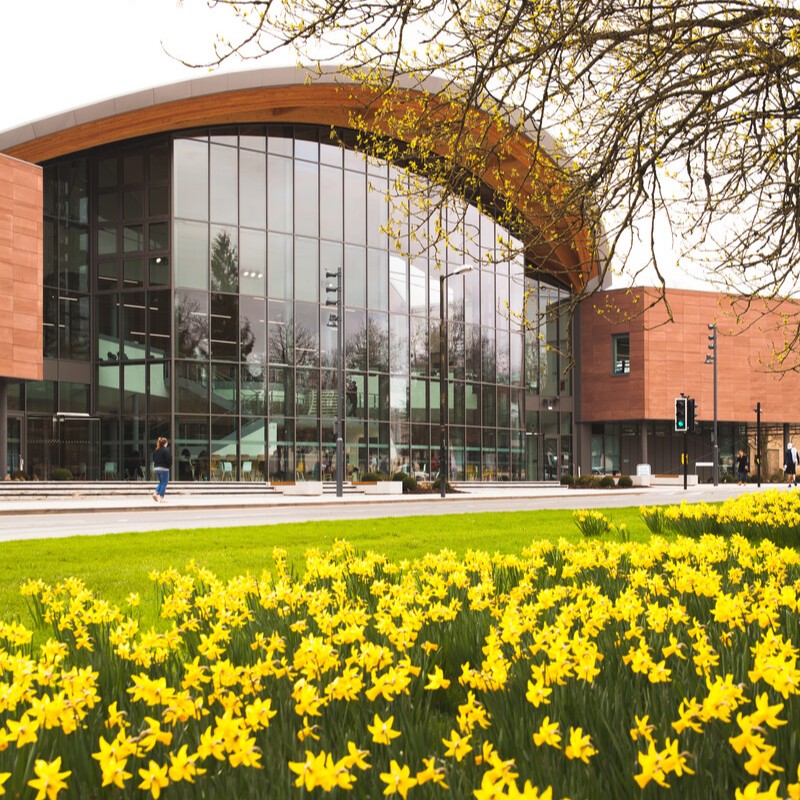Coventry CV4 7AL, United Kingdom
Career Counselling

The University of Warwick is located in the city of Coventry, United Kingdom. Founded in 1965, it has quickly risen to prominence among UK and world universities; with approximately 18,500 undergraduates and 10,000 postgraduate students, it is a centre of research excellence.
The 30+ Departments and Centres within the University are organised into three Faculties: the Faculty of Arts, the Faculty of Science, Engineering & Medicine, and the Faculty of Social Sciences. In the Research Excellence Framework Report of 2021, 92% of Warw...
| Establishment year | 1965 |
| Total Students | 28,823 |
| International Students | 10,453 |
| QS World University Rankings 2024 | 67 |
| Campus Size | N/A |
| Total Number of Campuses | 1 (small other venues in Wellesbourne and at the Shard in London) |
| University Website | https://warwick.ac.uk/ |
| No. of Schools and Divisions | 3 Faculties (Arts, Science, Engineering & Medicine, and Social Sciences), with Schools and Departments within |
| Nobel Prize Winner Alumni | 2 (one alumnus, one professor) |
| No. of Education Programs | 191 (undergraduate), 250 (postgraduate) |
| Student to Faculty ratio | 14:1 |
The University of Warwick runs all its undergraduate and postgraduate courses, and graduate research activity, through three Faculties.
The University of Warwick is highly selective, 14% of undergraduate applicants were accepted in 2021. These are the criteria for accepting UG and PG students to the university:
For undergraduates, Warwick considers test scores in the top 3 A-Level (or equivalent) subjects. International applicants can find the usual qualifying performance requirements for their country of education on the relevant University webpage.
Postgraduate degrees at the University of Warwick have varying entry criteria: on average, they require a performance in the UG degree equivalent to second class or better. The same international entry requirements page as for undergraduates has data on PG degree qualifications as well. Candidates should look at individual course webpages to collect data on additional certifications required.
Undergraduate applicants must apply to Warwick through the UCAS website: the deadline for most courses is 25 January of the entry year, though some may accept applications later than that date.
There are three key components of the application for UG candidates:
Most UG courses do not require a further interview after the application is submitted; for the few that do, residents of the UK will need to attend an interview on campus, while overseas students will have online interview arrangements made. The latest date for decisions to be announced is May 18.
The Postgraduate application process is more elaborate. The website has details of all courses, and choosing the best course is crucial. English proficiency and other entry requirements vary by course, so they can impact the materials to be submitted. Once all the application data is prepared and ready, candidates can submit their applications (including a fee and two academic references) through the university portal. The window of application closes a couple of months before the entry date for any course, but candidates are encouraged to apply earlier in the cycle, as soon as their personal statements and referees are ready.
To understand the tuition fees at the University of Warwick, it is convenient to divide the student body into four groups:
Living costs are common for people in all four categories above. The University recommends that students budget an average of £10,000 per year towards on-campus accommodation, food, travel, and general expenses.

The large University of Warwick campus strives to be welcoming, and enrich its students’ lives. It is divided into four main areas - Central, Gibbet Hill, Westwood & Science Park, and Lakeside & Cryfield. The constant urge to upgrade the facilities available to students has resulted in many state of the art buildings and centres coming up in the recent past, including the Mathematical Sciences Building and the National Automotive Innovation Centre, along with multiple fields, lakes, and woodlands.
Warwick Sport coordinates and manages all the fitness and sports activities on campus: every student is encouraged to try out the facilities for free for a month, before signing up for a longer period. State of the art fitness amenities include a gym, a swimming pool, physio centres, and tennis and squash courts, in addition to facilities for more serious players of sport at University / league level.
Sports Clubs at the University are student-run, but have access to world class facilities through the Sport & Wellness Hub. Students who are either proficient in a sport or interested in learning one can sign up to play Aikido or Wakeboarding, Taekwondo or Polo, and dozens more!

As a University, Warwick ensures that mental health support services are available to all members of the academic community at all times. A Wellbeing Portal on the University website offers extensive resources, and lets students schedule appointments with counsellors during working hours, with additional emergency support services.
With close to 30,000 students on campus, there is no shortage of social activities at Warwick. More than 300 student clubs offer the chance to take part in structured activities according to interest, and nightclubs, bars, live music venues, and tea shops offer the chance to meet new people and make lifelong friends.
Long term career growth has always been a priority at Warwick; within 5 years of graduation, alumni of the university rank within the top 10 in the United Kingdom by earnings in 10+ subjects. Each department has a dedicated placement and internship officer; students can get themselves ready for industry or academia through professional exposure, study abroad years, and years in research, and prepare themselves for campus interviews and final placements. Warwick Business School typically has the highest salaries offered to the graduating class, with the average annual post-MBA package settling at £98,226.
Given that UG students pay a total of up to £60,000 per year (in the School of Medicine) as fees, there are several scholarship and funding options to help defray these expenses. Six types of entities offer scholarships to both UG and PG students: the University itself, the UKRI Centres for Doctoral Training (for PhD students), individual Departments, Charitable Organisations, Industry donors and sponsors, and international Governments (depending on the nationality of the applicant).
Undergraduate scholarship applications begin with a search of the database webpage. Each scholarship has a different application and selection timeline; depending on eligibility and academic merit, some scholarships can waive part or all of the tuition fee, and help with a portion of living costs as well. In addition, the Warwick Undergraduate Bursary provides up to £3,000 per annum to students from lower income households. Any student being awarded multiple scholarships will have to choose the one with the highest value.
Postgraduate students access different tiers of scholarships; like UGs, they can find information on the scholarship database webpage. The application process starts online; in certain cases, an interview or additional material might be required. Those candidates who take part in research activities can receive an additional research stipend over and above partial or complete funding for course fees and living costs.
In case of problems meeting living costs, it is possible to meet with the Student Funding Team at the University to discover and implement solutions. Warwick provides hardship assistance to students who have financial difficulties. This could take the form of a short term loan or a grant that does not have to be repaid.
